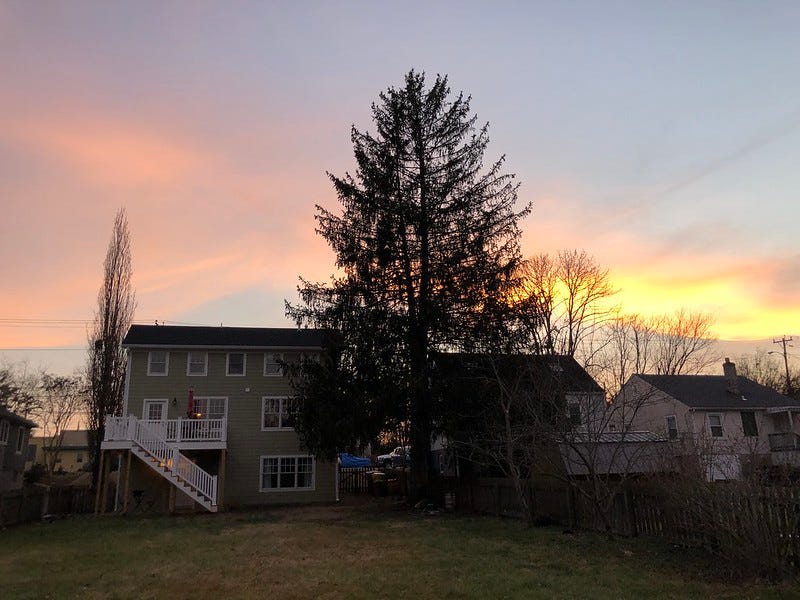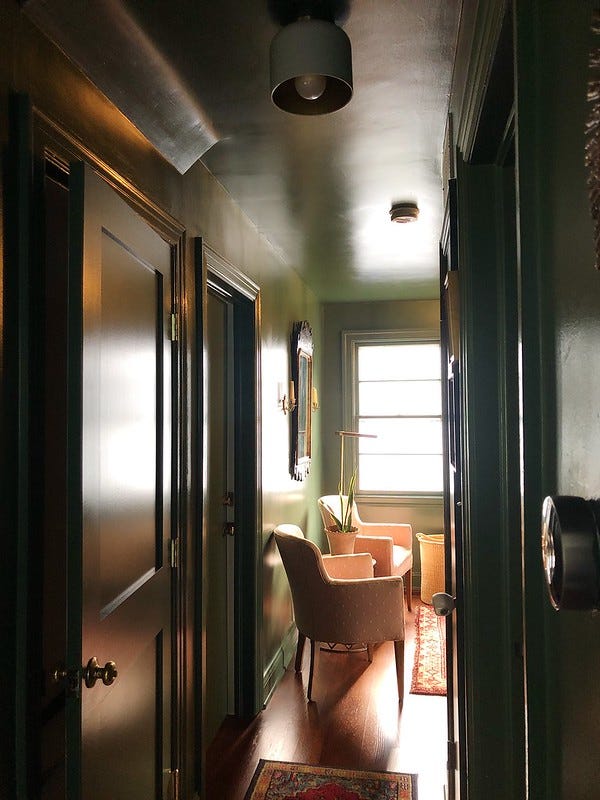For about a decade when I was growing up, Japanese women came to live with us every summer.
They were in America to study English, and they lived with us while attending university classes and helping me further my study of their language. It was a marvelous feature of our summers. I was in love with all of them.
Among these dozen or so women, every single one of them—well-educated, middle- to upper-class Japanese women—was shocked about one thing: our enormous houses.
We always found this funny, because by American standards, we had a small house for a family of six: a one-story ranch with three bedrooms. Sometimes all four of us kids shared the same room. We thought we had a modest house, and so we were surprised that our Japanese guests thought it was lavish.
Living in the United States affects the way that we think about the normalcy of our homes and the attendant act of actually caring for them.
This is not an essay about dismantling crony capitalism and replacing it with a buoyant Scandinavian socialist utopia. This is also not an essay asking us all to burn down our McMansions and go live “off the grid” in a tiny house in the woods, as if we even could fully entertain that notion. This is about being so deep in the belly of the empire that we (I) don’t even realize it.
I want to wake up a little, to understand why it is that our homes have become like this, why I feel like I need a shower with floor-to-ceiling tile; why I wanted my own en-suite bathroom for the first time in my adult life; why I couldn’t bear living in that temporary two-bedroom, wall-to-wall carpeted apartment, which was otherwise completely fine, another day longer than we had to.
Our renovation last year prompted a lot of these uncomfortable thoughts.
Why was it that our home—with one very tiny bathroom, and just two tiny bedrooms—was perfect for a family of five or six in 1959?
And why did it seem very imperfect, even unlivable, to my family of four in 2022?
In 1949, the typical single-family home was 909 square feet.
In 2021, the typical single-family home was 2,480 square feet.
Homes are getting bigger. And the number of people living in them is getting smaller: The median household size has decreased by 16% since 1940.
Why are American homes so big and only getting bigger? Many reasons: We’re richer, compared with prior generations (even though many don’t feel this way). The government encourages us toward homeownership and toward single-family detached homes. Zoning and land-use regulations also encourage new construction. Cheaper, mass-produced building materials have proliferated in just a few decades. Car-centric cities make it possible to live further out and build on cheaper land. We adore newness and love building brand-new houses (rather than preserving old ones). And it’s part of our cultural ethos: To be big! To have space and freedom and do whatever we want, consequences be damned.
We didn’t need to do our renovation. We could have continued living with in our house with its unfortunate layout (best bathroom in the basement, for example, where there was no bedroom) and tiny bedrooms and almost nonexistent living space. Many have and do. But I desperately wanted to. We’d lived in our house for eight years and felt familiar with its pros and cons. We didn’t rush into the renovation decision. But it was entirely motivated by desire, not true necessity.

Interrogating the source of this desire is what makes me squirm.
Was it class-based peer pressure? Was it an arbitrary sense of what a family home should be like, should have, to be aesthetically or spatially acceptable? Was it greed? Was it all of the above?
The only thing I’ve found to help me mentally fight against the empire mindset is to care for my house.
This is possibly why I write about housekeeping and chores so much.
To take care of something is to give it value. To conserve my home and its resources, I am aiming to protect it from destruction and loss. I am striving to keep it functional and beautiful for as long as possible, to make good use of what I’ve been given. That means I vacuum and clean the floors and (make Guion) mow the lawn and mend broken things before buying new ones. We’re keeping the stained and scratched sofa. We’re not changing the tiny main floor bathroom with its ancient tub. We didn’t touch the kitchen in the renovation. It’s not stylish or fancy, but it completely works. There was no reason to rip it out.
We’ve been conditioned by HGTV and Instagram and everything else to view our homes as always needing to be in a state of perpetual (extremely costly) renovation, hewing to whatever faux-“simple farmhouse living” trends are being pumped out by Joanna Gaines and her ilk.
It’s de rigueur to visit someone’s home and have them walk around apologizing for everything and promising, “We’re definitely going to renovate the kitchen as soon as we can, I know, I know the cabinets are awful,” and “putting in hardwoods is top of our priority list,” and so forth. It’s not a great way to be!
Caring for my home and not planning on future renovations help break me out of this mindset.
I was struck by this little piece in the Paris Review about an ugly bathroom. The author, Sarah Miller, says she has no plans to make her bathroom better. She writes:
“I get so sick of everyone thinking that everything they use has to be nice. Can’t some stuff just be crappy? Why do we have to get rid of perfectly functional stuff just so that every corner of our vision can twinkle with magic and possibility?
“I don’t think having an ugly bathroom makes me a good person. It just makes me someone who is able to feel satisfaction with one specific place that is far from perfect.”
This is a peace to which I aspire.
Is there any way back? I’m not sure.
All I have is a simple prayer:
Thank you for the home I have. I do not deserve it. I will never deserve it. Keep me from wanting more. Amen.
Further Reading
Article: “Bad Manors,” Kate Wagner, The Baffler. (While I don’t agree with all of her conclusions, this is a compelling history of why the McMansion is still alive and well, from the author of the popular Tumblr McMansion Hell.)
Article: “Why Are American Houses So Big?,” Joe Pinsker, The Atlantic.
Book: Having and Being Had, Eula Biss. (A gosh-darn perfect title if I’ve ever seen one. A book about the ironies and value systems of American home ownership.)






Abby, have you read the latest Anne Helen Peterson piece. It has similar vibes to what you're talking about here. https://annehelen.substack.com/p/how-your-house-makes-you-miserable